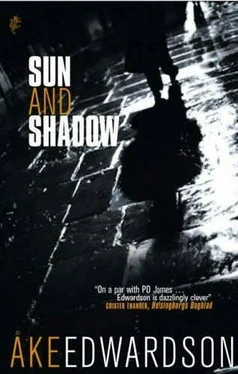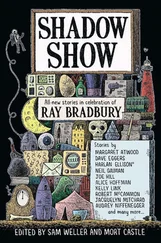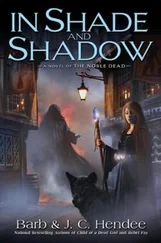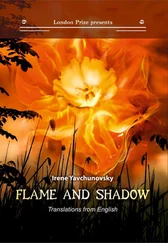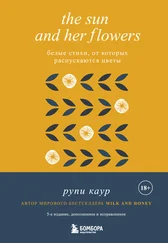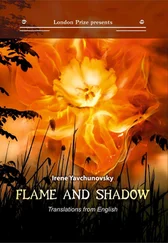She felt worried about him, about what had happened to him. She knew that he was struggling with his memories, the relationship with his father that had drifted away. He was trying to cope with it by not speaking about it, but that was not the right way of approaching it. He needed to talk to somebody, perhaps just occasionally. She could see that his chin had dropped slightly, as if he’d fallen asleep in the chair once the music had finished.
He’s intelligent, he understands. But it’s a big step from understanding to actually coping. Coming to terms with his memories. But keeping quiet doesn’t help. Nor does throwing yourself all out into a new and horrific investigation. It might provide an odd kind of comfort for a brief while, but only for a brief while.
“I can see you’ve got me under the microscope,” he said, raising his chin so that almost all of his face was in shadow.
“I thought you were asleep.”
“I’m resting. I feel better now and am ready for another eighteen hours of work.”
“But you must have something to eat.”
“It’s the middle of the night.”
“Something suitable for the night, then. Did you have anything at all this evening?”
“Coffee. A cheese roll.”
“I could make you a Paris sandwich, but I’ll fry some ham with the egg instead of a burger.”
“A Paris sandwich! Do they still exist? Is the term still in dictionaries nowadays? I haven’t had one of those for at least thirty years.”
“Then it’s about time you did. It’s one of my late-night specialities.”
“There are still things about you that I don’t know, Angela.” He slid down out of the easy chair, crawled over to her, and crouched with his head on her knee. She stroked his head, but her fingers found little purchase thanks to his close-cropped hair. “Dark late-night secrets,” he said. “Yes. Yes! I can’t wait to try it, this Paris sandwich.”
As they ate, he avoided thinking about his father and those last days in Marbella. He almost managed it, but for a split second he could see Alicia in front of him, the table at Altamirano, her surprise, and possibly pleasure, to see him standing there. Her friend had managed to find a spare chair and he sat down. Food was served. They’d been waiting for the food, too long according to Alicia, and she’d looked at him as if expecting him to answer a question he hadn’t heard her ask. He had drunk wine and the black iron balconies on the far side of the little square had seemed closer, as if carried down by the bougainvillea. He could feel the sweat on his brow.
“What do you think?”
Angela was looking at him, and nodded toward his plate.
“Fantastic,” he said, cutting another piece of the bread, egg, and ham.
“Yes, it’s pretty good, isn’t it?”
“And yet it’s so simple.”
“It’s like you say. Fantastic.”
“And so quick. It’s only just turned midnight,” he said, checking his watch. At that moment, the telephone rang.
Patrik and Maria could see the white street through the café window. It was unusual for snow to remain in the city center, on the few occasions there was any. Patrik was waiting for the idiots to put up the Christmas decorations in the streets and the shop windows. A Merry Christmas in November, as it were. Why bother to wait? Celebrate Christmas Eve on November 24. Why not? Santa Claus is coming to town.
“Imagine it happening only just around the corner,” said Maria, taking a drink of her hot chocolate. Smoke was rising from her cigarette lying in the ashtray. Smoke was rising from thirty million cigarettes lying in ashtrays in there, and when they went outside he’d be able to smell smoke in his clothes and right through to his brain. He didn’t like it. There was no need to smoke just because everybody else was doing it.
“A bit farther than that,” he said. “But more or less just around the corner.”
“And that you were the one who discovered it.”
“That old caretaker guy had noticed it as well.”
“Why didn’t he do something about it, then?” she said, taking a puff of her cigarette. “Why didn’t he report it sooner?”
“How should I know? He’s an old guy. Old guys are cowards.”
She laughed, replaced her cigarette in the ashtray, and took another drink of her hot chocolate. What a mixture. If she’d been drinking espresso he could have understood it, but not a cigarette and chocolate. He was drinking espresso. Double espresso. It tasted awful. You didn’t get much either.
“What do you think they saw when they went in?” she asked.
“No, idea.”
“It must have been awful.”
“A dead married couple,” he said. “There’s only one thing worse than that.”
“What?”
‘A live married couple.“
She grinned, but noticed that he wasn’t even smiling. Maybe it wasn’t a joke. She knew what he’d been through, was still going through. She reached for his hand, brushed against her cigarette and burned herself.
“Ouch!”
“That’s what happens when you mess around with that crap.”
She stroked her finger and blew on it.
“It hurts.”
“About time you stopped.”
“I’ve only just started.”
“I think they saw something worse than a Wes Craven,” he said.
“What do you mean?”
“Halloween. I think it was Halloween in that apartment, sort of.”
“Explain.”
“Come on, Ria. For once I’ve been following this in the newspapers. I mean, you could say that I’m an interested party. I checked to see what the police had to say about what they found inside there. What had happened. Are you with me?”
“No.”
“It says nothing at all about it. About what had happened, sort of. I think that’s fishy.”
“Take it easy. They never tell you all that much, do they?”
“Do you read the papers regularly?”
“I read about the TV programs. What’s on in town.”
“Don’t you see what I’m getting at?”
“Are you saying that they’re keeping quiet because there was something extra horrific inside there?”
“Yes. That’s the way I see it. Less is more.” He drank the last drops of his cold espresso and made a face.
“That’s smart.”
“What?”
“A smart way of putting it. Less is more.”
“There’s another thing.”
“And?”
“I think I might know what kind of music they were playing in there.”
They were three cars behind and Morelius saw the Volvo jump a red light.
“We can get him under the bridge,” Bartram said.
They pulled out and passed the cars that had stopped at the red light and waved to the Volvo driver to stop next to the Shell gas station. They walked toward the car, one on each side, and the driver, who was alone, rolled down his mud-covered window as Morelius approached. They were about the same age.
“Can I see your driver’s license, please?”
The man took his wallet out of his inside pocket and produced his license from a collection of other plastic cards. He was wearing a thick polo-necked shirt and a thin jacket. Glasses, his thinning hair combed back. He seemed nervous, but it would have been odd if he hadn’t been. Morelius couldn’t smell any alcohol.
“You were a bit ahead of yourself back there.”
“I know.”
“You’re supposed to stop at a red light.”
“I know, I know. I thought I could make it before it changed from yellow.” He looked up at Morelius. “You can usually make it on yellow.”
“That depends,” said Morelius. “Were you in a hurry?”
“I’m late picking up the kids from nursery school. Very late, in fact. They actually phoned me to ask where I was.” He looked at Morelius again, but he wasn’t playing for sympathy. “They even phoned,” he said again.
Читать дальше
